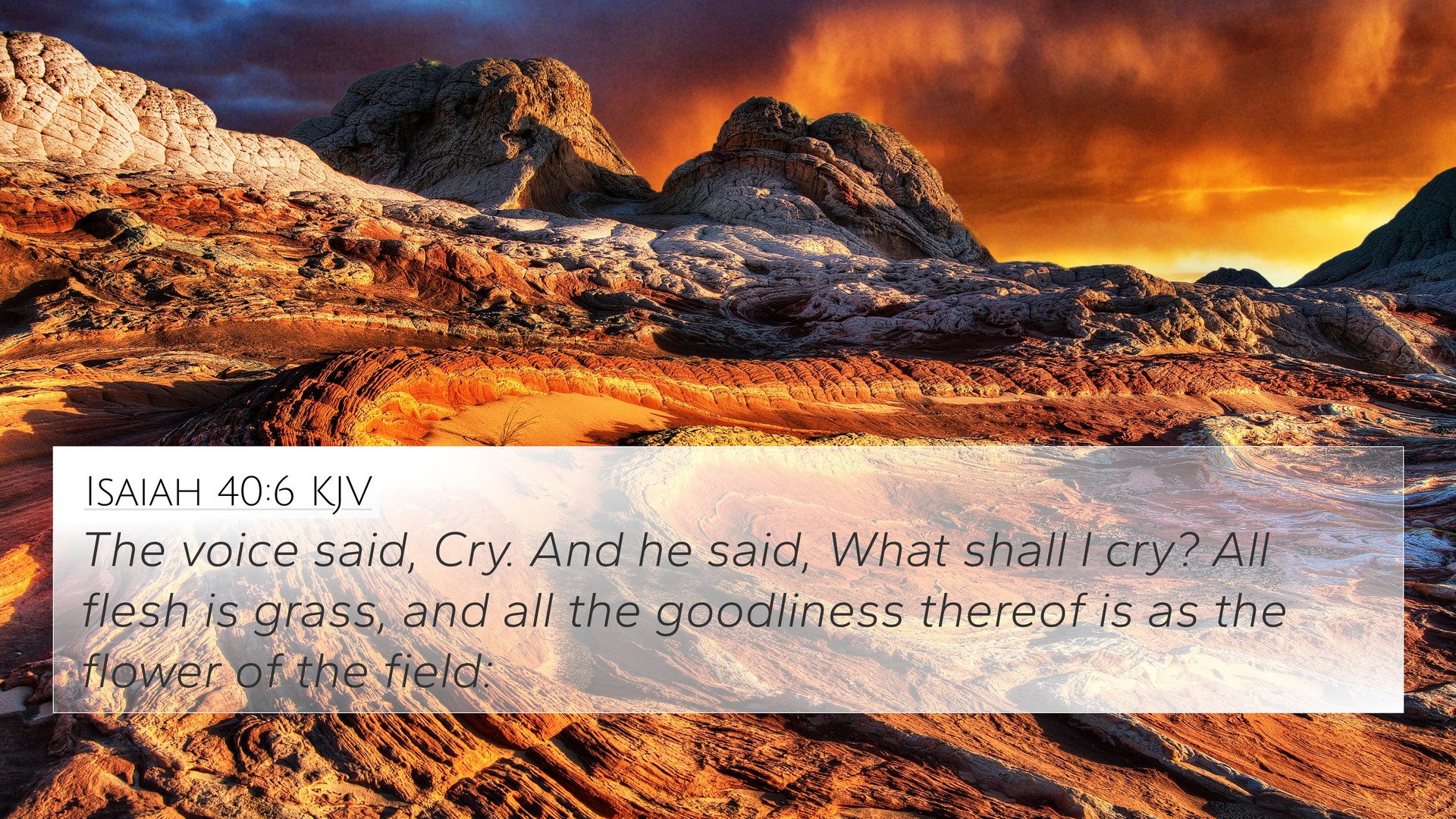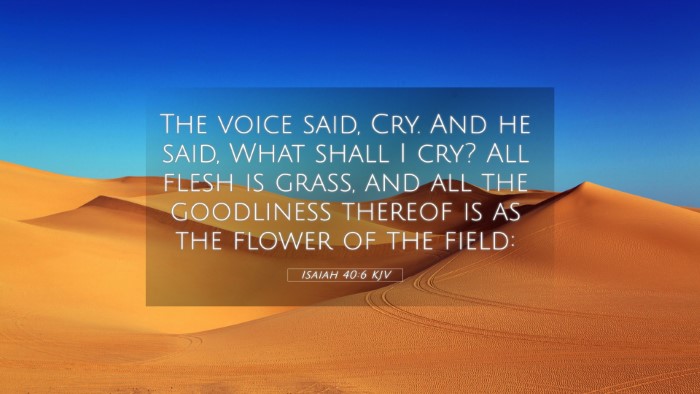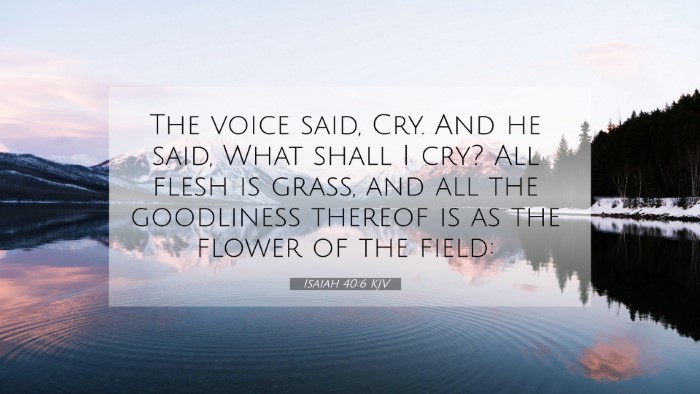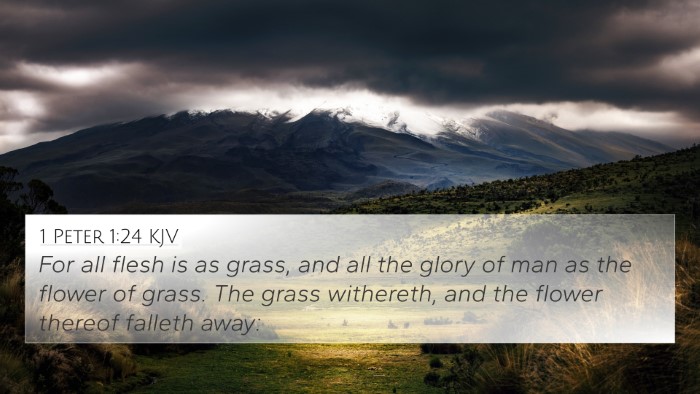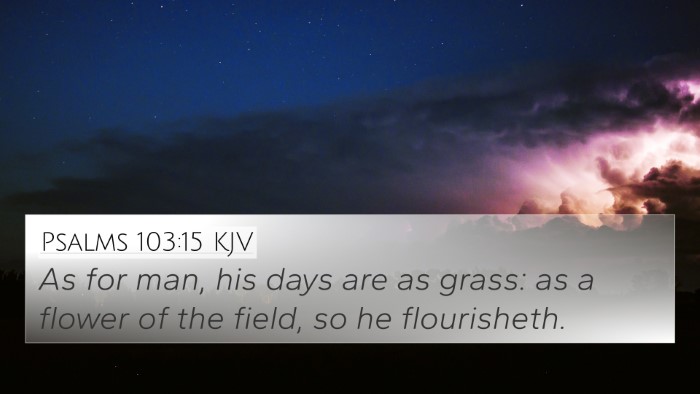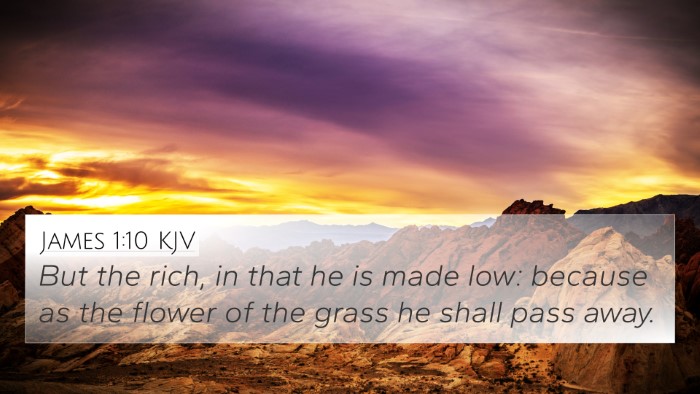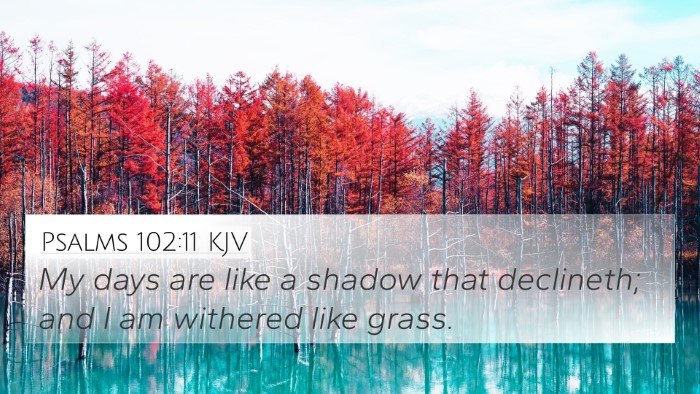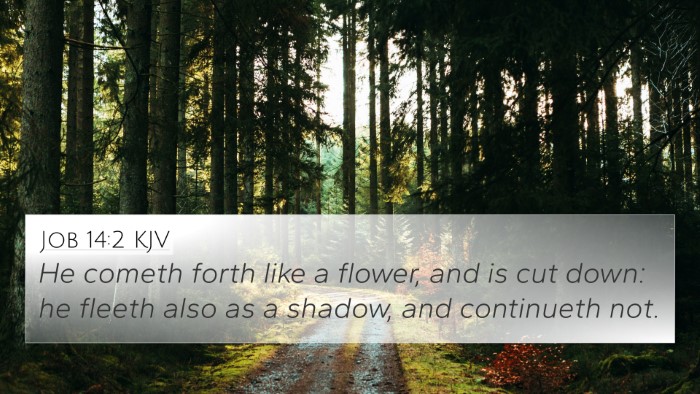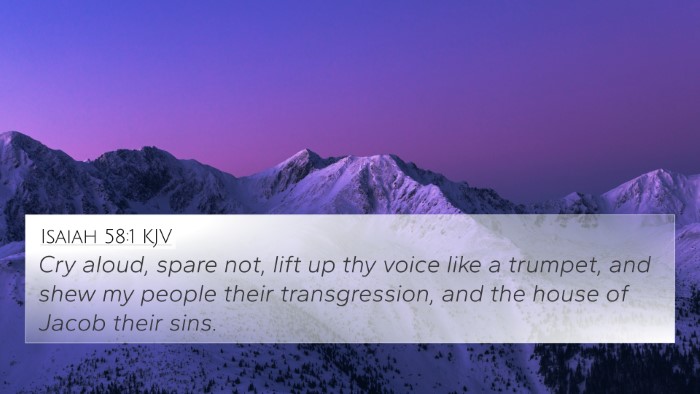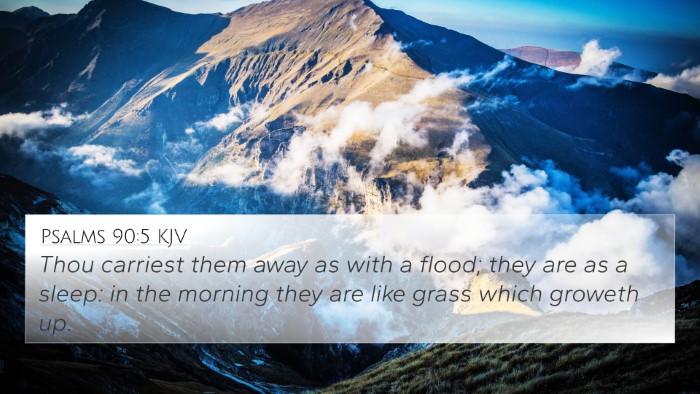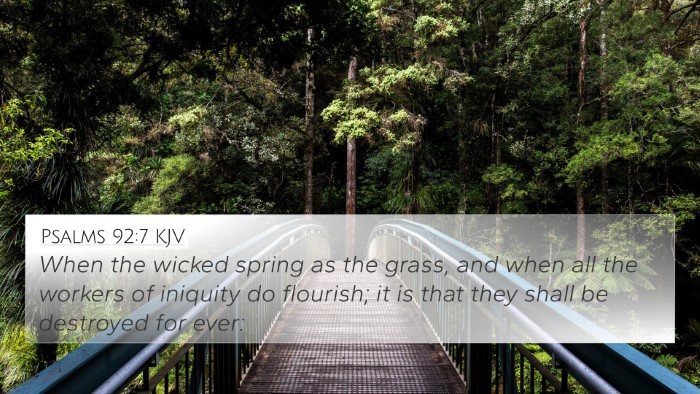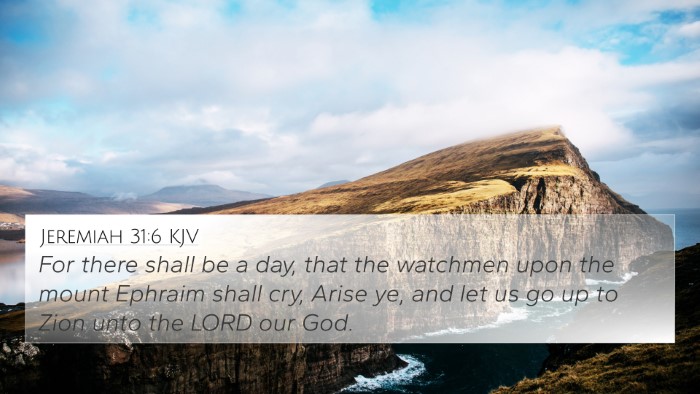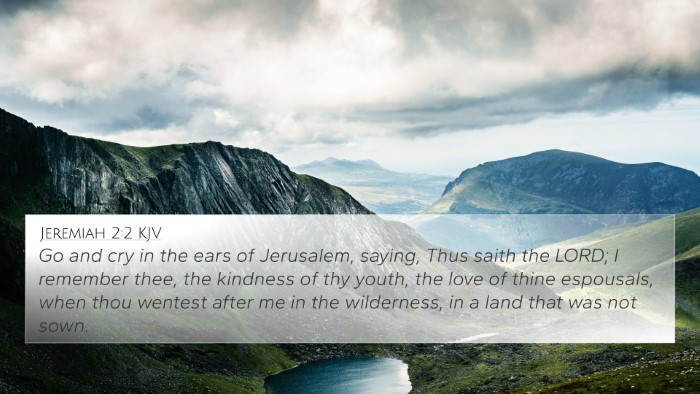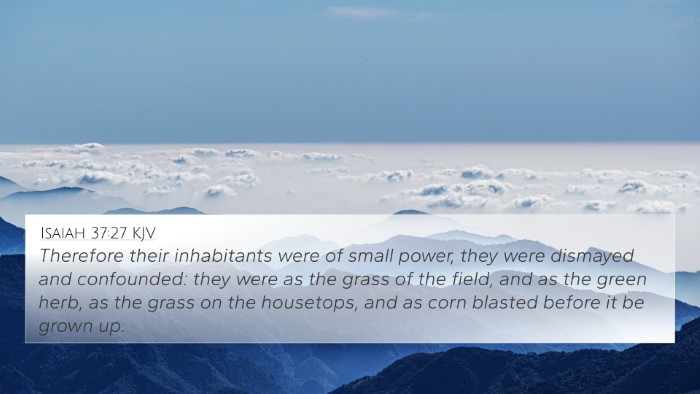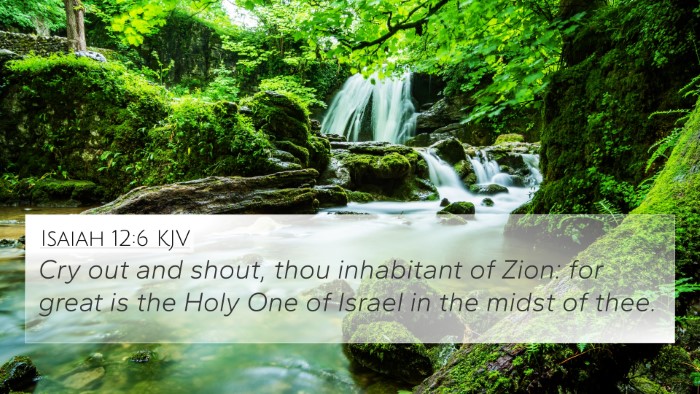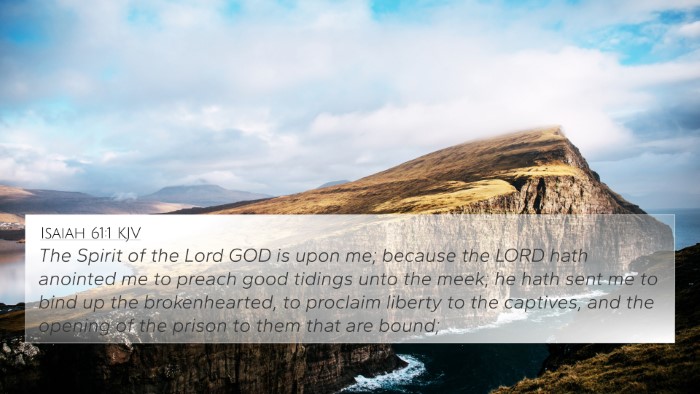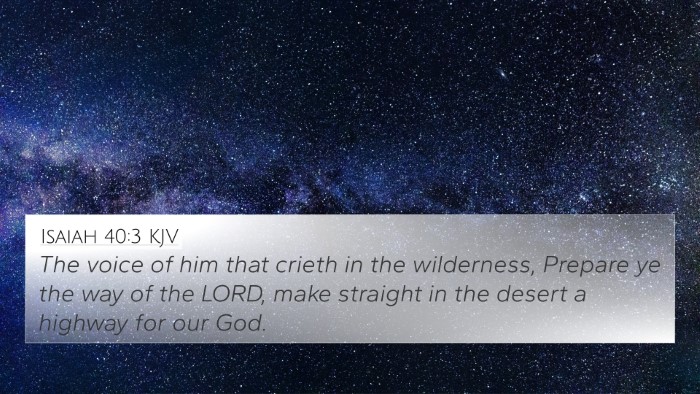Understanding Isaiah 40:6
Isaiah 40:6 states, "The voice said, Cry. And he said, What shall I cry? All flesh is grass, and all the goodliness thereof is as the flower of the field." This verse introduces profound themes regarding the transitory nature of human life and beauty, marking a pivotal point in the prophetic discourse of Isaiah. Various commentaries provide insights into its meaning, particularly regarding the ephemerality of human existence in contrast to divine permanence.
Summary of Commentary Insights
This verse emphasizes the frailty of humanity. Below are the merged interpretations from notable public domain commentaries:
-
Matthew Henry:
Henry highlights the contrast between the eternal nature of God and the fleeting existence of man. He points out that the "voice" reiterates the necessity for repentance and humility, recognizing human limitations. Human strength and glory are described as ultimately transient, like grass and flowers that wither and fade.
-
Albert Barnes:
Barnes interprets the imagery of grass and flowers as symbols of human life. He notes that grass, though it may appear lush and vibrant, is ultimately temporary, emphasizing that all human endeavors and appearances will eventually fade. This serves as a reminder to prioritize spiritual over material pursuits.
-
Adam Clarke:
Clarke expounds on the metaphor of grass and flowers more thoroughly, illustrating how both represent mortality and the fleeting beauty of life. His commentary reinforces the idea of human reliance on God, underscoring the need to focus on eternal truths rather than the passing pleasures of the world.
Thematic Connections
Isaiah 40:6 presents significant theological themes, primarily the contrast between the divine and the earthly. This verse can be linked with several other biblical texts that reinforce its message:
- James 1:10-11: "But the rich, in that he is made low: because as the flower of the grass he shall pass away." This verse parallels the ephemeral nature of human fame and wealth.
- 1 Peter 1:24-25: "For all flesh is as grass, and all the glory of man as the flower of grass. The grass withereth, and the flower thereof falleth away: But the word of the Lord endureth forever." This directly echoes the message of Isaiah, affirming the permanence of God's word.
- Psalm 103:15-16: "As for man, his days are as grass: as a flower of the field, so he flourisheth. For the wind passeth over it, and it is gone; and the place thereof shall know it no more." This Psalm reinforces the transitory nature of human life.
- Ecclesiastes 1:2: "Vanity of vanities, saith the Preacher, vanity of vanities; all is vanity." This theme resonates with the futility found in worldly pursuits.
- Isaiah 51:12: "I, even I, am he that comforteth you: who art thou, that thou shouldest be afraid of a man that shall die?" This reflects the folly of fearing human opinion over divine truth.
- Matthew 6:30: "Wherefore, if God so clothe the grass of the field, which to day is, and to morrow is cast into the oven, shall he not much more clothe you, O ye of little faith?" This illustrates God's care for creation and contrasts it with humanity's worries.
- 2 Corinthians 5:1: "For we know that if our earthly house of this tabernacle were dissolved, we have a building of God, an house not made with hands, eternal in the heavens." This highlights the eternal hope found beyond earthly existence.
Cross-Referencing Biblical Texts
This verse serves as a pivotal moment in understanding the inter-Biblical dialogue about the nature of life and the assurance provided through faith. When exploring the connections and parallels between these verses, it becomes evident that the themes of mortality and divine permanency are woven throughout Scripture. These cross-references not only reinforce the interpretations drawn from Isaiah 40:6 but also serve as vital tools for deeper Bible study and reflection.
Conclusion
In conclusion, Isaiah 40:6 offers a sobering yet hopeful perspective about life. As highlighted by the insights of esteemed commentators, it calls the reader to recognize the fleeting nature of flesh while inviting them to find permanence and hope in God’s word. Through cross-referencing, one can explore further the biblical truths concerning human existence and divine promise.
Further Study Tools
For those interested in digging deeper into cross-referencing and exploring connections between Bible verses, consider utilizing tools such as:
- Bible concordance
- Bible cross-reference guide
- Cross-reference Bible study materials
- Bible chains and references
- Comparative Bible study resources
